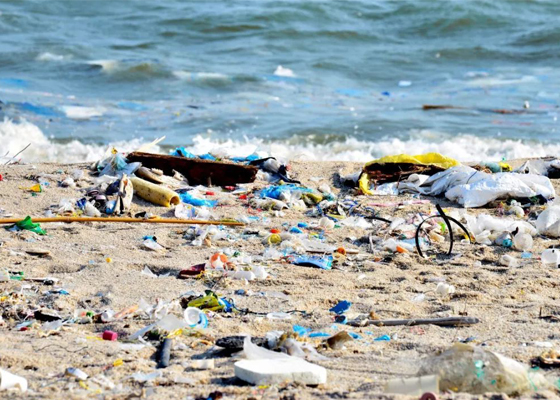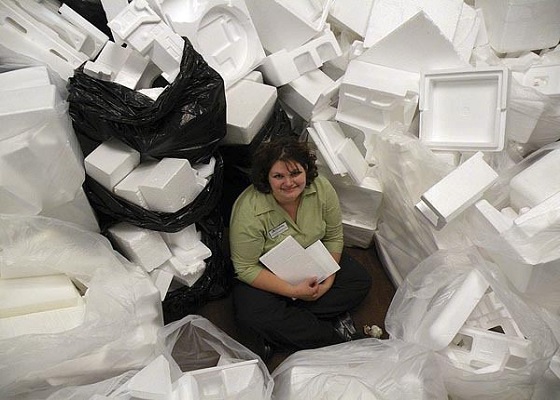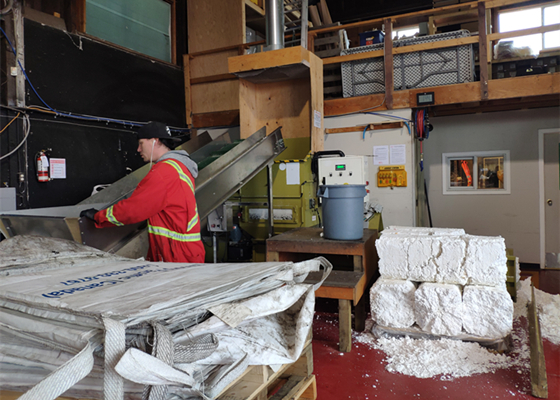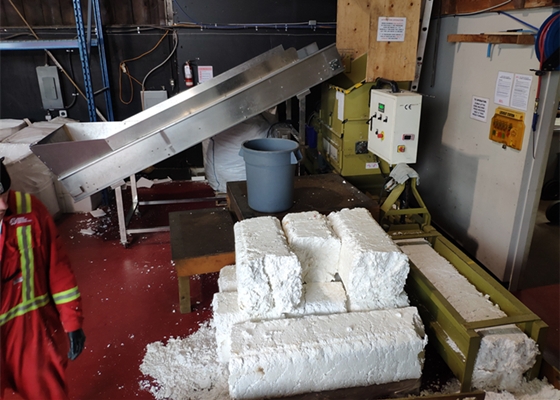GREENMAX Separates Foam Recycling from the Traditional Waste Management Model in North America
Do you know how serious the situation of white pollution is now? Maybe it's more exaggerated than your imagination. So far, the world has produced 8.6 billion tons of plastics, of which 70% are discarded. Since plastic packaging producers do not have to bear environmental responsibility, their attitude towards dealing with these wastes is very casual, usually landfill and incineration. Plastic waste flows into the ocean with groundwater and causes serious pollution. Now, there is one ton of plastic for every three tons of fish in the ocean. Some environmental experts have predicted that plastic waste in the ocean will one day exceed fish.

As an important part of plastic waste and one of the culprits of white pollution, foam recycling has always been a difficult problem in North America. As we all know, the concept of dry and wet waste separation is gradually being popularized. Environmentalists call on people to classify waste and maximize the use of resources. Blue trash cans for waste recycling can be seen everywhere in the streets of the United States.
Unfortunately, foam is not recyclable waste in the traditional sense. In the traditional recycling mode, it can only be buried like other non-recyclable waste, and then it is difficult to degrade for hundreds of years. Now, with the continuous development of GREENMAX, one of the most authoritative recycling companies in North America, the GREENMAX foam compactor has brought a turnaround for foam recycling.

Foam compactor is an ace recycling machine designed by GREENMAX. It aims to recycle foam in an efficient way and turn it into available resources. The cold-pressing technology of foam compactor does have a significant effect on foam recovery. In successful cases, it seems that foam should be separated from the traditional recycling mode as recyclable waste.

Waste Control Services & Recycling Inc (WCS for short) is a typical successful case. As a waste recycling company operating in Vancouver, Canada for 27 years. WCS always insists on creating a beautiful environment and is committed to recycling local garbage, especially foam. However, due to limited technical support, it has not achieved satisfactory results.
After long market research, WCS chose to cooperate with GREENMAX and purchased foam compactor A-C200. Equipped with screw technology with a high compression ratio of 1/50, the foam compactor helped WCS recover nearly 1 million pounds of foam waste. Humanized one-to-one operation guidance and after-sales service make people feel at ease. And all the recovered foam blocks can be used for granulation, which undoubtedly realizes the reuse of resources.

Plastic particles are one of the important resources now. They can be used to make frame products, and they are popular because they are superior to wood. After treatment, foam can be used as raw material for granulation. Therefore, foam waste should not be discarded to pollute the ocean, but recycled and utilized to provide new resources while benefiting the environment.
